Related Research Articles

James Bowen Everhart was an American politician from Pennsylvania who served as a Republican member of the U.S. House of Representatives for Pennsylvania's 6th congressional district from 1883 to 1887. He also served as a member of the Pennsylvania State Senate for the 19th district from 1876 to 1882.
Poe is a surname commonly found in the United States. The most famous bearer of the name was American writer Edgar Allan Poe (1809–1849), the grandson of an immigrant from County Cavan, Ireland. The name has also been used as an Anglicization of the German surname Pfau and of the Catalan surname Pou.
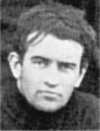
Arthur Poe was an American football player and businessman, and one of six celebrated Poe brothers—second cousins, twice removed, of American author Edgar Allan Poe—to play football at Princeton in the late 19th and early 20th century. He was selected retroactively by the Helms Athletic Foundation as the national college football player of the year for 1899, and was elected to the College Football Hall of Fame in 1969.

John Prentiss Poe Jr. was an American college football player and coach, soldier, Marine, and soldier of fortune, whose exploits on the gridiron and the battlefield contributed to the lore and traditions of the Princeton Tigers football program.

Gresham Hough Poe was an American football player and coach. He was the head coach of the University of Virginia football program from 1903 to 1903. Prior to that he played as a substitute quarterback for the Princeton Tigers. He was a member of the Poe brothers, six celebrated football players to play football at Princeton in the late 19th and early 20th century. He, and all of his brothers were also second cousins, twice removed of American author Edgar Allan Poe. Outside of football, Poe was a noted wrestler.
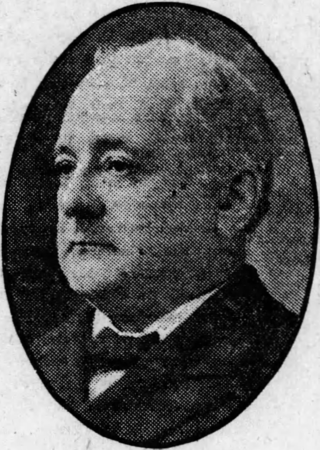
John Prentiss Poe was Attorney General of the State of Maryland from 1891 to 1895. He also served in the Maryland Senate from 1890 to 1891.
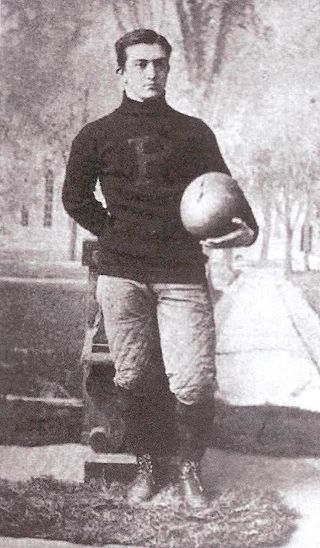
Edgar Allan Poe was Attorney General of the State of Maryland from 1911 to 1915. He was born in Baltimore, the son of former Maryland Attorney General John Prentiss Poe. He was named for his great uncle and second cousin, twice removed, the celebrated author Edgar Allan Poe, who died in 1849.
The 1881 Michigan Wolverines football team represented the University of Michigan in the 1881 college football season. While the University of Michigan had fielded "football" teams in 1879 and 1880, those teams played a game that was more in line with traditional rugby, and many consider the 1881 team to be the first at Michigan to play American football. The team finished with a record of 0–3 after playing the top teams in the country – Harvard, Yale and Princeton.
The 1889 College Football All-America team was the first College Football All-America Team. The team was selected by Caspar Whitney and published in This Week's Sports.

Jesse Bright Riggs was an All-American football player. Riggs played for the Princeton University football team from 1888 to 1891. He was an All-American in 1890 and captain of the 1891 Princeton football team.

Thomas Dudley Riggs was an All-American football player. He played for Princeton University and was selected as an All-American in 1895.
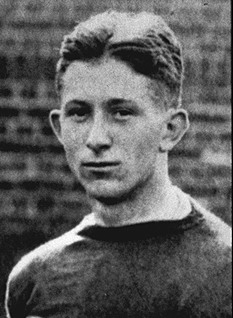
Donold B. Lourie was an American businessman, government official, and college football player. He served for many years as the president of the Quaker Oats Company, and held various other executive positions there and for several other businesses. President Dwight D. Eisenhower appointed Lourie to a position in the State Department, and he served in that capacity for one year. Lourie attended Princeton University, where he was a star quarterback, and he was named a consensus All-American as a junior. Lourie was inducted into the College Football Hall of Fame in 1974.

The 1889 college football season was the season of American football played among colleges and universities in the United States during the 1889–90 academic year.

The Poe brothers were six American football players who played football at Princeton University from 1882 until 1901. They were sons of John P. Poe Sr., an 1854 Princeton graduate and the Attorney General of Maryland from 1891 until 1895. They were also second cousins, twice removed, of the poet and short story writer Edgar Allan Poe, who died in 1849.
Judge Neilson Poe was an American judge for the City of Baltimore's orphan's court,. He was initially appointed to the court by Maryland Governor John Lee Carroll in 1878 and elected to the position in November 1879. He had the job until 1883.

Neilson Poe a.k.a. Net Poe was a football player for the Princeton Tigers. He played in the Princeton backfield in 1895 and 1896, and even later returned to coach football at the school. He was also one of the Poe brothers, six siblings who were celebrated football players at Princeton University from 1882 until 1901. Neilson graduated from Princeton in 1897.

Samuel Chenery Damon was a missionary to Hawaii, pastor of the Seamen's Bethel Church, chaplain of the Honolulu American Seamen's Friend Society and editor of the monthly newspaper The Friend.

Calvin Blythe was a Pennsylvania lawyer and judge. He served as state Secretary of State and briefly as Attorney General.
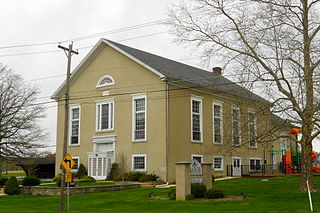
John Blair was a Presbyterian minister, a Trustee, Professor, and Acting President of Princeton University. His brother Samuel Blair was a leader of the Presbyterian New Light religious movement. His nephew, Samuel Blair was the second Chaplain of the United States House of Representatives.
Joseph Francis Perantoni was an American football player who played at the center position. He played college football for Princeton and professional football for the New York Yankees.
References
- ↑ "About Princeton: Memories of the Poe brothers". Princeton.edu. Retrieved November 14, 2023.